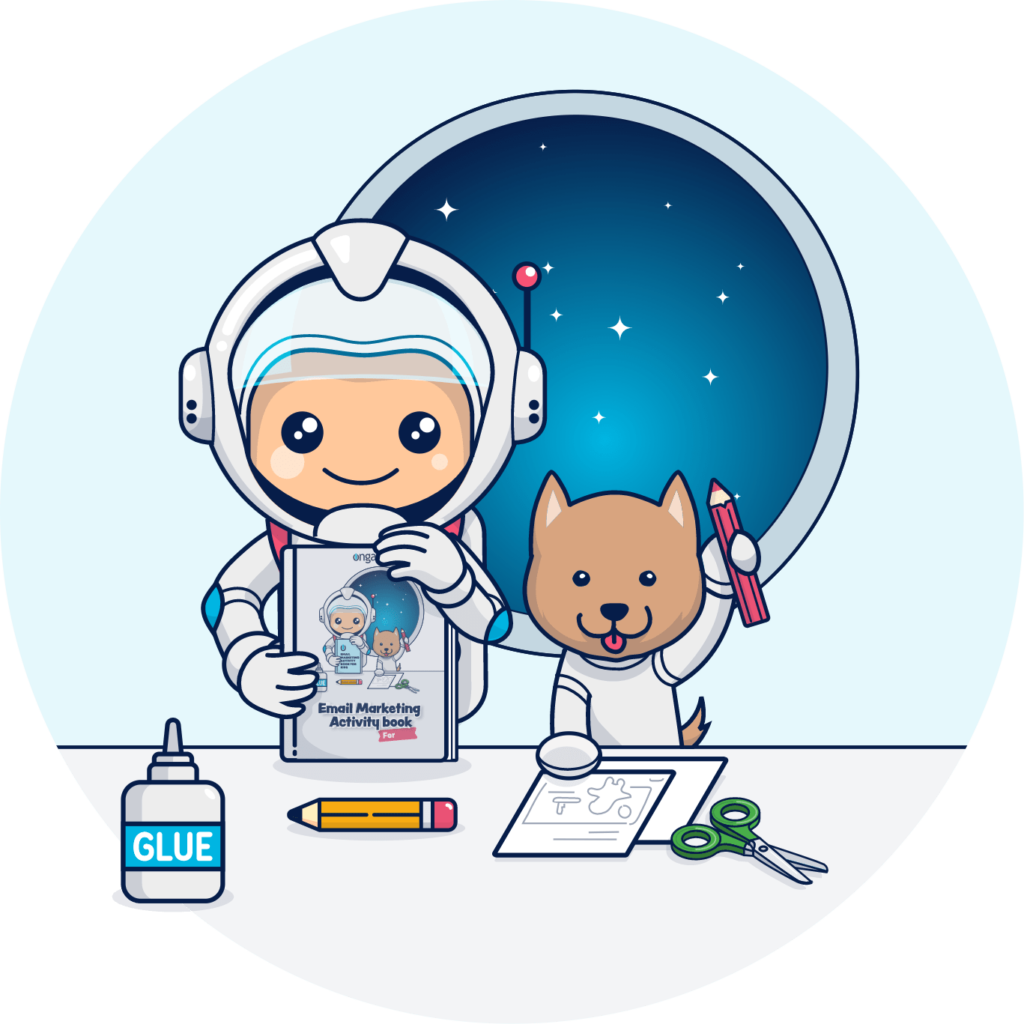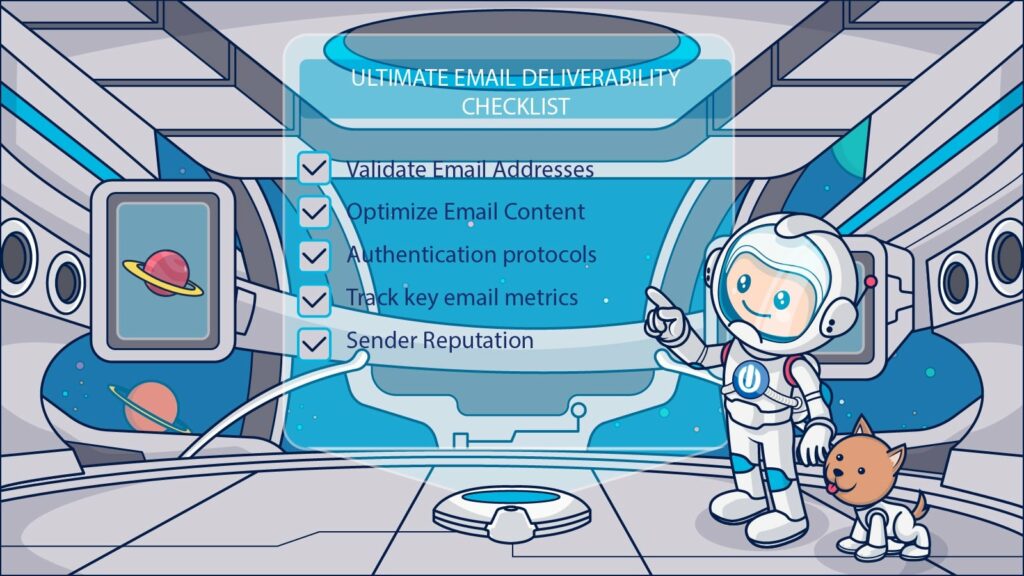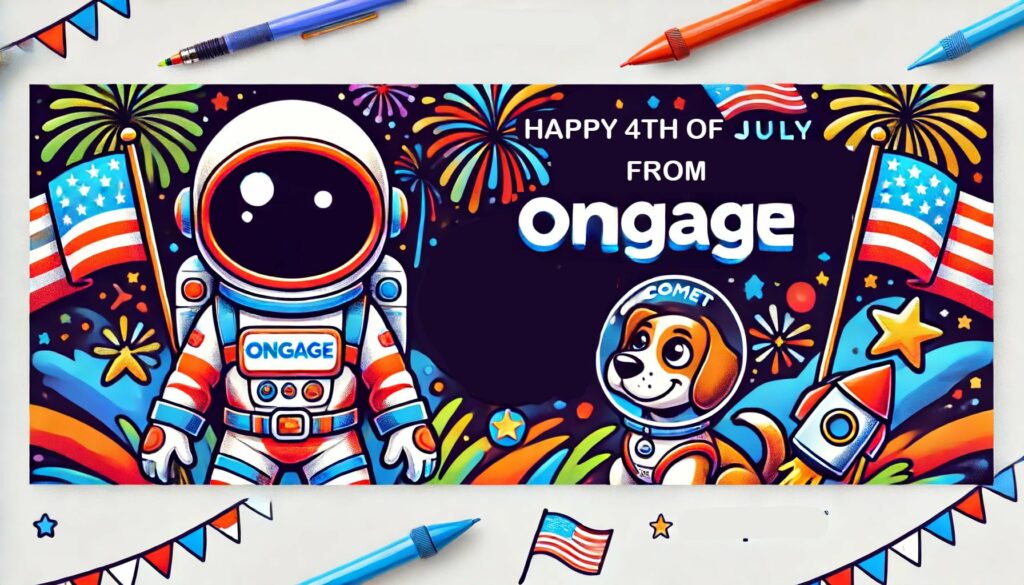As an email marketer, your goal is to help leads progress along their journey to eventually convert them into fully-fledged customers, generating ROI for your business.
However, for you to achieve the conversions that you want, your subscribers need to be truly receptive to what you have to say, requiring you to earn their trust.
Building trust with subscribers is a gradual and delicate process, made all the more challenging by the existence of malicious third parties who seek to steal your data and that of your customers.
Thankfully, technologies exist to help protect such data so you can focus on curating your customers’ journey from lead to conversion.
Among the various and important email authentication protocols, SSL is one such technology.
| Want to jump ahead? What is SSL email? What is an SSL email certificate? How to obtain an SSL email certificate The importance of SSL email Conclusion |
What is SSL email?
SSL, or Secure Sockets Layer, is a protocol for securing internet connections between two systems. It uses encryption to modify users’ data to prevent third parties, such as hackers, from accessing and exploiting private information.
SSL was once the standard encryption protocol, though it has effectively been succeeded by the improved TLS (Transport Layer Security). However, TLS works in the same way as SSL and accomplishes the same goal, so both terms are often used interchangeably in many contexts.
Due to data regulations such as those laid out by GDPR, SSL encryption is a mandatory part of brand-customer communications. As such, an SSL certificate is required.
What is an SSL email certificate?
An SSL certificate is a file that includes two encryption keys: a public key and a private key that recipients use to decrypt messages. SSL certificates are provided by certification authorities (CA) to servers and websites.
There are three main classes of SSL certificates:
- Domain Validation (DV) SSL certificate: Verifies that an organization owns the domain in question.
- Organization Validation (OV) SSL certificate: Proves that an organization has authenticated its identity as a business.
- Extended Validation (EV) SSL certificate: Highest level of SSL certificate and demonstrates that a site owner has undergone an extensive identity verification process and verified their exclusive control over the domain.
There are also three types of certificates that you can obtain, all of which serve different purposes:
- Single Domain certificate: Allows domain owners to secure a single domain, which makes this suitable for smaller companies.
- Multi-Domain certificate: Allows a single IP to secure multiple domain names.
- Wildcard certificate: Enables domain owners to secure multiple subdomains within a base domain, such as on a large, complex website.
Depending on the nature of your business, the SSL certificate that you require may vary.
How to obtain an SSL email certificate
To obtain an SSL, you must verify the information of your site using ICANN Lookup, then submit a certificate signing request to a CA to validate the domain.
For an extended validation certificate, this usually takes no longer than 10 business days, whereas DV and OV certificates take less time.
Once you have a signed certificate, you can install it on your site.
The importance of SSL email
Installing an SSL certificate is extremely important for a business because it protects your data and that of your customers when they use signup forms and payment windows on your website. This is beneficial for both parties.
Having an EV certificate installed enables the HTTPS security protocol, which displays a padlock icon and green bar in browsers to let your customers know that they are using a secure website. This can ultimately play a major role in building trust among customers, which affects the success of your business.
Moreover, by establishing the authenticity of your business, an SSL security certificate can improve the reputation of the IP address associated with your domains. This, in turn, leads to a better sender reputation, improving your deliverability when enacting your email campaigns.
Conclusion
Before attempting to engage your target audience and generate conversions, you need to establish a strong foundational trust with them.
This means that you must demonstrate respect for your customers’ data and provide a guarantee of security in all of your interactions.
For this reason, SSL encryption is a cornerstone of all successful email marketing initiatives.
By obtaining and installing an SSL certificate on your site, you can protect yourself and your customers, build trust in your brand, and improve the reputation of your domains so that you are equipped to achieve greater success with your email campaigns going forward.













